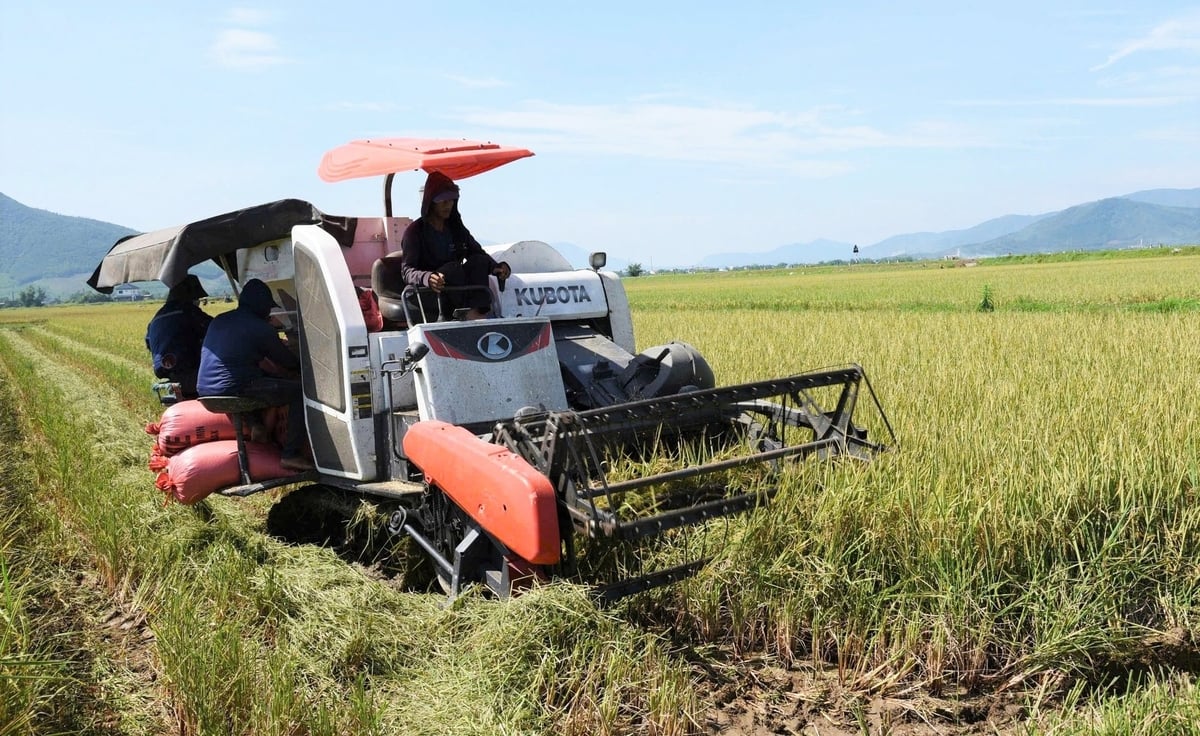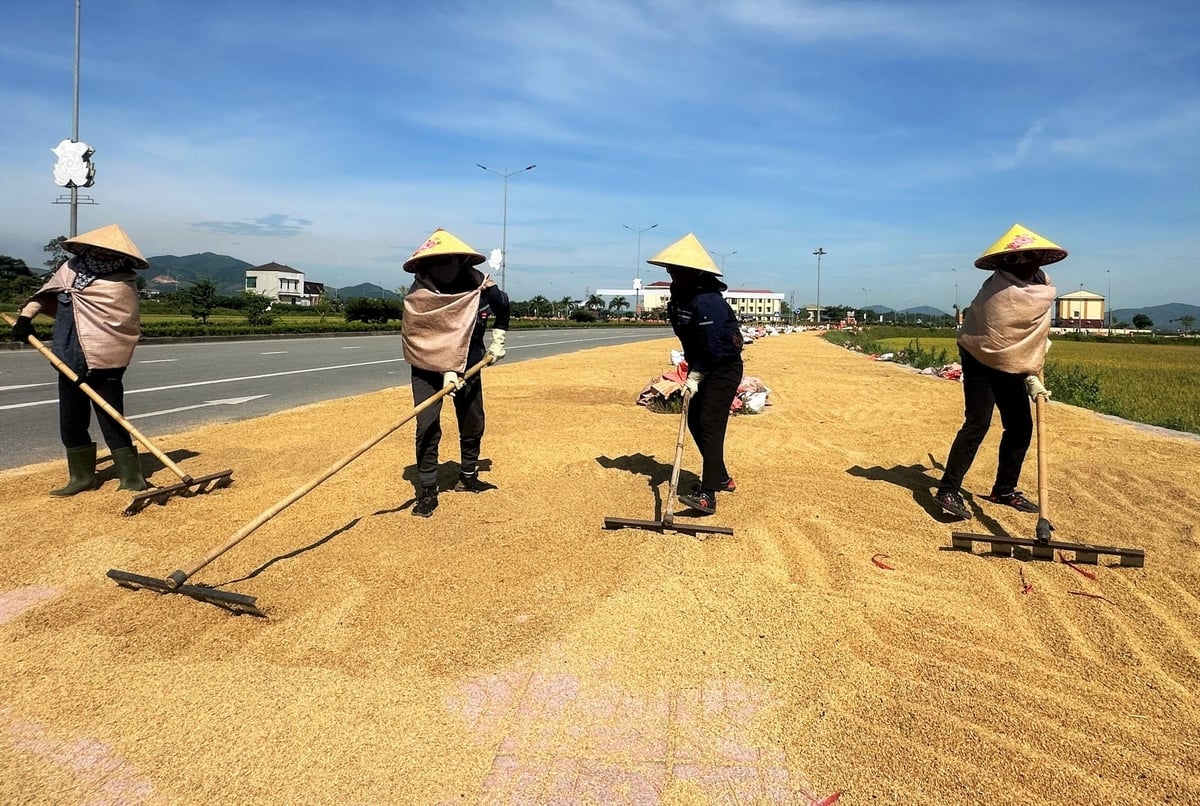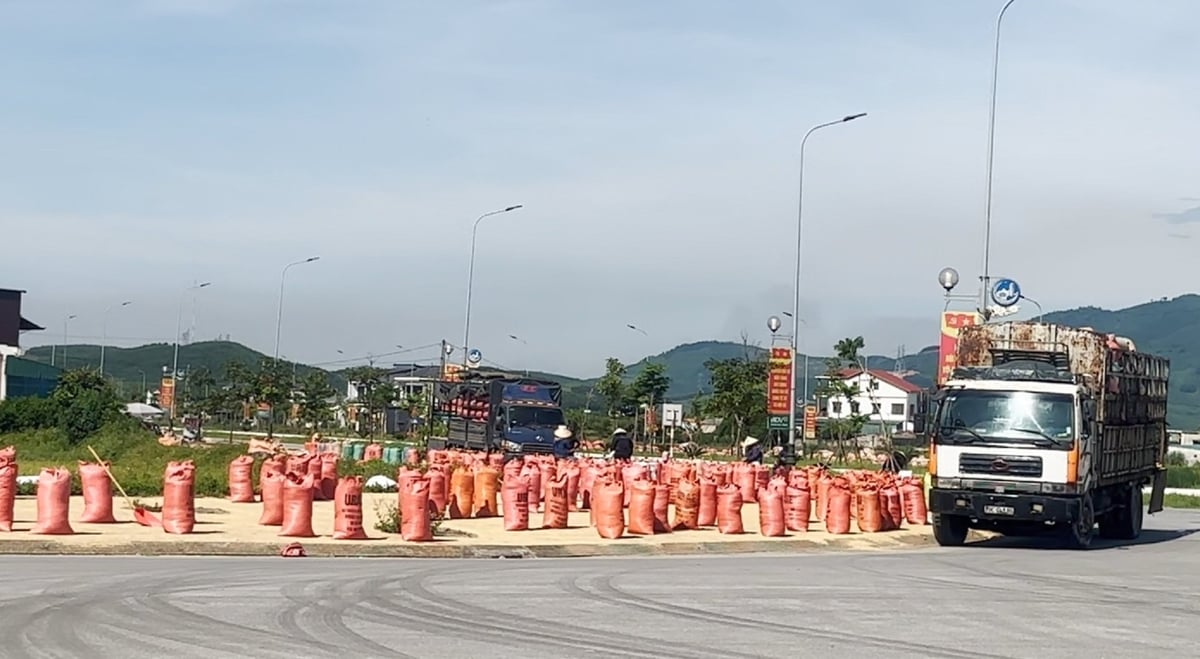October 31, 2025 | 10:13 GMT +7
October 31, 2025 | 10:13 GMT +7
Hotline: 0913.378.918
October 31, 2025 | 10:13 GMT +7
Hotline: 0913.378.918

Thorough application of technical measures in organic rice production brings high income to farmers. Photo: Thanh Nga.
In recent years, as people’s quality of life has shifted from “eating enough” to “eating well”, the development of clean and environmentally friendly agriculture has been strongly encouraged and promoted by the Vietnamese government.
In Ha Tinh Province, key crops such as rice, oranges, grapefruit, tea, and pineapple have attracted major investors, including Que Lam Group, Dong Giao Export Food Joint Stock Company, and KC Ha Tinh Company, to form organic production partnerships. These enterprises aim to develop material zones large enough to supply deep-processing factories serving both domestic and export food needs.
A positive signal over the past five years has been the land consolidation revolution, replacing small plots with large, linked organic, high-quality rice fields. Records in Ky Anh, Ky Khang, and Ky Xuan communes in Ha Tinh Province show that these localities have consolidated more than 1,150 hectares of rice paddies across five zones in a short time.
“On this consolidated land, we invited Que Lam Group Joint Stock Company to partner in producing ST25 rice under organic standards. In the spring 2025 harvest, the full 52.5 hectares achieved great success with a yield of more than 260 tons and a total value of over VND 3.5 billion. This result provides a foundation for the locality to continue expanding the area, developing a material zone for domestic and export needs”, reported the head of the Economic Department.

The yield of high-quality rice in communes such as Ky Anh, Ky Xuan, and Ky Khang has increased with each cropping season. Photo: Thanh Nga.
According to the province’s agriculture sector, models like this not only improve land use efficiency but also help reshape agricultural production chains toward a green economy, contributing to emissions reduction and sustainable development goals in the locality.
In 2023, in implementing Resolution No. 06-NQ/TU of the Ha Tinh Provincial Party Committee dated November 18, 2021, on leadership and direction for land consolidation linked to new rural development for the 2021–2025 period and beyond, the former Ky Phu Commune (now Ky Anh Commune) focused on land consolidation to form a nearly 60-hectare model organic rice field in Phu Minh Village. This was done in partnership with Que Lam Group Joint Stock Company, involving nearly 60 households. After five production seasons, the model has proven to be comprehensively effective.
Each season, the locality chooses seed varieties based on weather and soil conditions. Spring crops use ST25, and summer–autumn crops usually use Khang Dan or Xuan Mai varieties to supply raw materials to local noodle and pastry processors. The production process avoids inorganic fertilizers and chemical pesticides, using only organic compost, mineral-organic fertilizers, and manure composted with microbial agents. As a result, products consistently meet safety and quality standards.
Strict adherence to organic production methods has also improved soil quality, enhanced water retention capacity, and increased biodiversity in cultivation areas. This is a significant advantage amid increasingly severe climate change impacts on agriculture.

Businesses are partnering with local farmers to develop high-quality rice cultivation areas to meet both domestic and export demands. Photo: Thanh Nga.
“Spring season yields usually reach 5.2–5.4 tons per hectare, sold at VND 12,000–13,000 per kilogram, so farmers earn much higher profits than from traditional production”, said the head of Phu Minh Village, Ky Anh Commune.
He added that the commune authorities are encouraging the continued conversion of inefficient land shares to organic rice cultivation combined with fish farming. This aim is to increase productivity, boost income, produce safe and environmentally friendly products, and participate in the supply chain of clean and organic agricultural products as part of the province’s OCOP program.
Although smaller in scale than in Phu Minh Village, the “organic combination of rice cultivation and sandworm farming” model in Dau Giang Village, Ky Khang Commune, is also showing practical results in productivity, output, and especially environmental protection. The model was launched in spring 2022 on a pilot area of 5 hectares with eight households. By spring 2025, the area will have expanded to nearly 20 hectares with 40 participating households.
Nguyen Van Huan, a farmer producing on 1.5 hectares, shared: “After switching to organic production, the sandworms, which we thought were extinct, are reappearing in increasing numbers, along with other creatures such as fish, shrimp, and snails. Especially through rigorous application of organic agricultural techniques, within just a few seasons, rice yields have increased from 4 tons per hectare to 5.5 tons per hectare, with selling prices two to three times higher than conventional production”.
*$1 = VND 26.305 - Source: Vietcombank.
Translated by Huong Giang

(VAN) This was the view of Tran Duy Ninh, Director of the National Digital Transformation Authority, at the forum ‘Digital Transformation in Agriculture: Seizing Opportunities, Adapting to the Future.’
/2025/10/30/4240-2-133931_337.jpg)
(VAN) Lam Dong province is intensifying efforts to manage fishing vessels and combat illegal, unreported, and unregulated (IUU) fishing, aiming to develop a modern, responsible, and sustainable fisheries sector.
/2025/10/29/1148-1-150439_570.jpg)
(VAN) By preventing fishing vessels from violation, drastically reducing connection loss, and promoting electronic traceability, Ho Chi Minh City is clearly demonstrating its efforts to lift the IUU 'yellow card.'

(VAN) Experts propose translating evidence and practical models into concrete policies and resources, establishing agroecology as the foundation for a sustainable agricultural transition.

(VAN) Viet Nam’s rice exports struggle after the Philippines halted imports. Beyond the efforts of businesses, government contracts play a key role.

(VAN) An Giang Province calls on the people to combat IUU fishing; violations may result in a VND 1 billion fine or imprisonment of 15 years.

(VAN) Sludge treatment has been a major challenge for Hanoi, which may seem minor at first glance but has a profound impact on sustainable development.